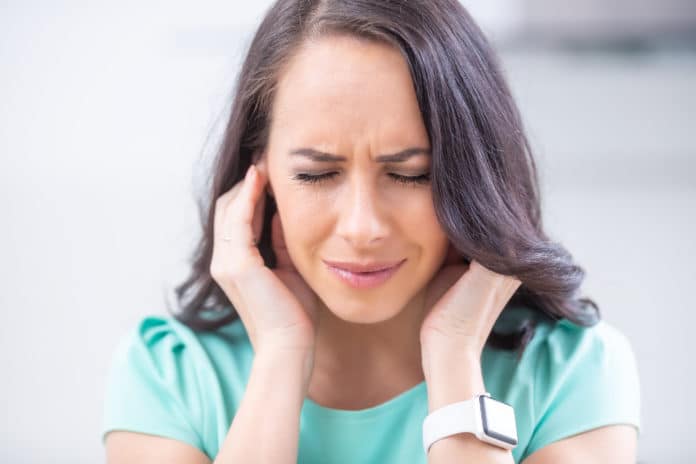- 15% of Europe’s adults have ringing in their ears
- Specsavers audiologist in Benidorm Jorge Martínez de Lizarduy Araico shares his expert advice on managing tinnitus
Tinnitus, a debilitating condition affecting 1 in 7 adults in Europe[1], is the experience of perceiving noises in the ear, despite there being no external sounds to cause this.
This Tinnitus Awareness Week (5 – 11 February), audiologists from Specsavers in Benidorm shine a light on the signs and symptoms of the condition, highlight its impact on daily life and provide expert advice on how to manage it best.
While symptoms are individual to each person, the most common sensation sufferers report is described as a ringing sound, which in severe cases, can be unrelenting. Other frequently reported sounds include buzzing, whistling, humming, hissing and even grinding.
Tinnitus can occur in one ear (unilateral tinnitus) or both ears at once, with its onset either being sudden or gradual, depending on the cause and type.
Despite numerous studies, the direct cause of tinnitus remains unclear. There are however, a number of factors known to contribute to its onset, including age-related hearing loss, earwax build-up, ear infections, perforated eardrum and exposure to loud noise.
Tinnitus can have a huge impact on a person’s quality of life. Symptoms can cause sleep problems, problems concentrating and low mood. What’s more, a recent study of over 8,000 participants found that people with tinnitus[2] are more likely to suffer with depression and anxiety.
Jorge Martínez de Lizarduy Araico, audiologist at Specsavers in Benidorm: ‘There is no single cure for tinnitus, but there are methods that can help. The first step is to understand if tinnitus is being exacerbated by a medical condition, like an ear infection, then treating that condition may resolve the symptoms of tinnitus.’
‘There are many suggestions on how to treat tinnitus, with many alternative remedies being proposed, such as vitamins and supplements like B12 and zinc. However, the most common approach from professionals would include the treatment of symptoms through sound and behavioral therapies such as tinnitus retraining therapy (TRT) and cognitive behavioral therapy (CBT). A healthy diet and exercise, along with relaxation techniques are also common components of treatment plans. Relaxation exercises are a useful way to minimise the stress and worry that can result from tinnitus. Techniques include yoga, deep breathing and guided meditation.’
Tinnitus can affect anyone, however it is more common in people with hearing loss. If you think you have tinnitus, or have noticed changes in your hearing, book a free hearing test with a Specsavers in Benidorm. The store is located in Calle Gambo 2, Benidorm and you can call 965 859 577 or visit www.specsavers.es to request a hearing or eye test.
[1] https://cordis.europa.eu/article/id/435788-almost-15-of-europe-s-adults-have-a-ringing-in-their-ears-say-researchers
[2] https://www.ncbi.nlm.nih.gov/pmc/articles/PMC9917824/







